#french theatre
Text
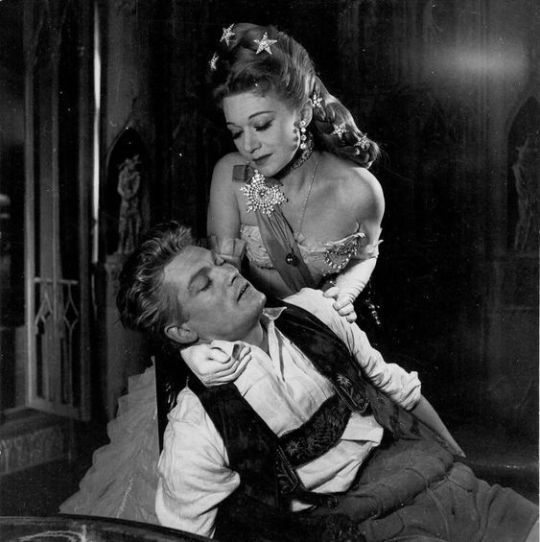

L'Aigle à deux têtes, directed by Jean Cocteau, 1946 // A Comforting Gaze, painted by Frank Craig, 1910
#L'Aigle à deux têtes#jean cocteau#jean marais#edwige feuillère#theatre#play#théâtre#a comforting gaze#frank craig#art#illustration#photography#stage#pretty#dreamy#vintage#parallels#web weaving#french theatre#english art#british art#paris#london#1940s#1910s#femme#homme#retro#aesthetic#romantic academia
155 notes
·
View notes
Text
Nothing is more real than nothing.
Samuel Beckett, from Malone Dies, 1951
#samuel beckett#theater of the absurd#malone dies#nothingness#absurdity#french theatre#dark acadamia aesthetic#literary text#books and libraries#classic literature#world literature
108 notes
·
View notes
Text
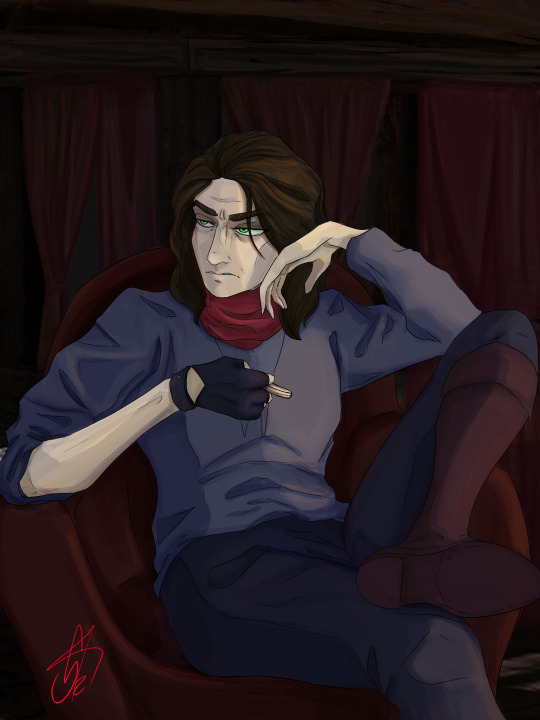
Guess who's back after a year of complete silence
I really hope the fandom is still alive here ngl. Anyways, enjoy some fresh tybalt artwork as a return piece
#romeo and juliet#romeo es julia#resj#romeo et juliette#romeoetjuliette#tybalt capulet#mercutio escalus#romeo e giulietta#fanart#rnj fanart#art#french theatre#french musicals#musical#digital art#tybalt
37 notes
·
View notes
Text
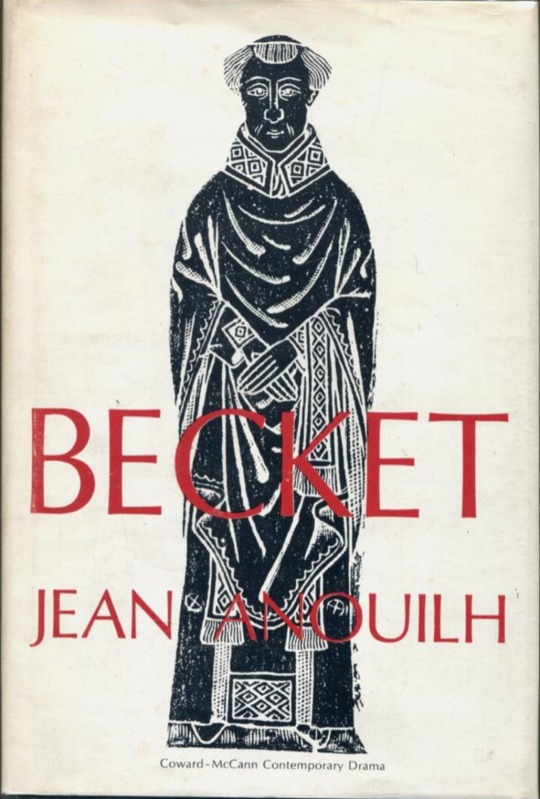
Play 16: Becket by Jean Anouilh (tr. Lucienne Hill)
First performed: St. James Theatre, New York, 1960
Quote: "You can't tell a lie. I know you. Not because you're afraid of lies - I think you must be the only man I know who isn't afraid of anything - not even heaven - but because it's distasteful to you. You consider it inelegant. What looks like morality in you is nothing more than aesthetics." (King)
Stage direction: [The wind of excommunication shivers through the Council.]
Notable cast: Laurence Olivier and Anthony Quinn starred in the 1960 US premiere as Becket and the King, with Olivier taking over as the King once Quinn left the production. The first UK production included Eric Porter, Christopher Plummer, Diana Rigg, Roy Dotrice, Patrick Wymark and Ian Holm among its cast; Plummer was a replacement for Peter O'Toole, who quit the production (and the RSC) to make Lawrence of Arabia (1962). O'Toole would play the King, opposite old friend Richard Burton as Becket, in Peter Glenville's 1964 film adaptation. Subsequent productions and adaptations have included actors such as Derek Jacobi, Dougray Scott, Toby Stephens and David Morrissey.
Notes: Anouilh drew on inaccurate sources when writing Becket, resulting in a play which diverges in places quite drastically from known history; these mistakes were discovered before publication, but the playwright decided he preferred the dramatic development to true historiography. It was the right choice, and whilst the play is often wrongly considered a historical piece, it's truthfully more of a tragedy, with all the trappings and devices that carries with it. As a study of the title figure, a man whose transformation from aesthete to servant of God is as surprising to himself as to his peers, Anouilh makes the interesting choice to keep Becket offstage for long sections of the play; his character and his person are better explored through the impact he has on those around him, in particular King Henry II, subtly identifying the cult of personality which would come to surround Thomas immediately after his death.
Read: for the first time (?), but the film is a favourite
#100plays#becket#jean anouilh#lucienne hill#modern drama#theatre#aldwych theatre#french theatre#1961#the becket cult is a fascinating footnote in the history of english theology#it grew rapidly immediately after the murder (Becket was canonised a saint astonishingly quickly‚ just three years after his death) and#held strong for decades. its impact was felt centuries later (Chaucer's Canterbury Tales concern a group of pilgrims travelling to Becket's#shrine) and Henry VIII considered his memory sufficient threat that he ordered the destruction of images and manuscripts referring to him#that a 20th century french playwright would choose for a subject this martyr might seem less obvious#but this is a play that is resolutely less interested in the saint and more in the man; his humanity‚ in every sense‚ good and bad#a play about transformation and change and resistance and resentment
11 notes
·
View notes
Text

#musicals#theatre#movies#memes#funny#Twitter#les mis#bread#shit post#French class#i have a sub rn and I’m too bored enjoy the shitpost
24K notes
·
View notes
Photo
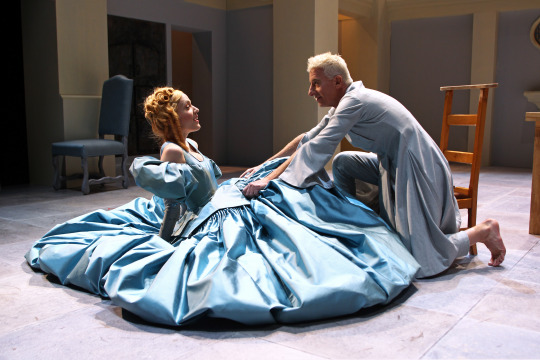
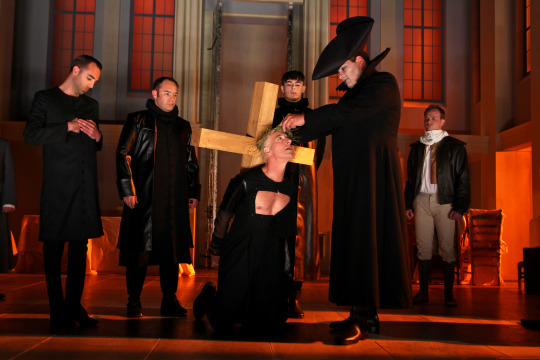
Molière’s Tartuffe at the South Coast Repertory, California, 2014.
0 notes
Text
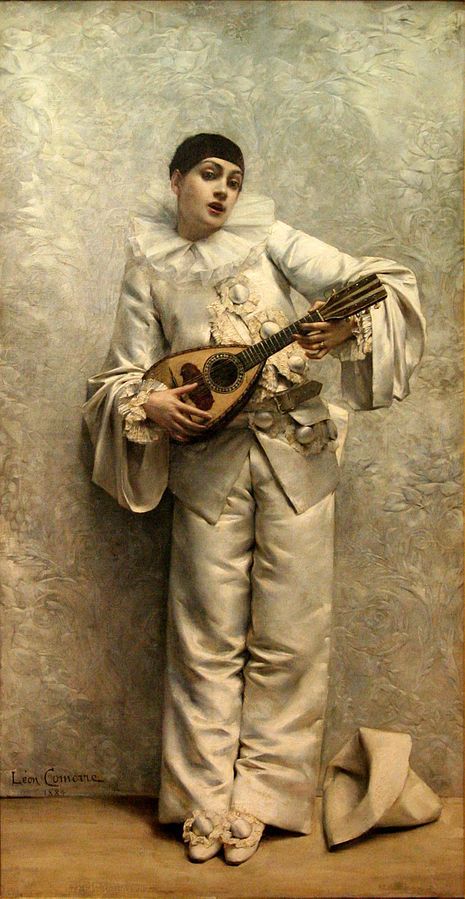
Léon Comerre (1850-1916)
"Pierrot jouant de la mandoline" ("Pierrot playing the mandolin") (1884)
Oil on canvas
Academicism
#paintings#art#artwork#genre painting#portrait#léon comerre#leon comerre#oil on canvas#academcism#french artist#theatre#theater#white#costume#costumes#opera#pierrot#musical instruments#1880s#late 1800s#late 19th century#aesthetic#aesthetics
722 notes
·
View notes
Text
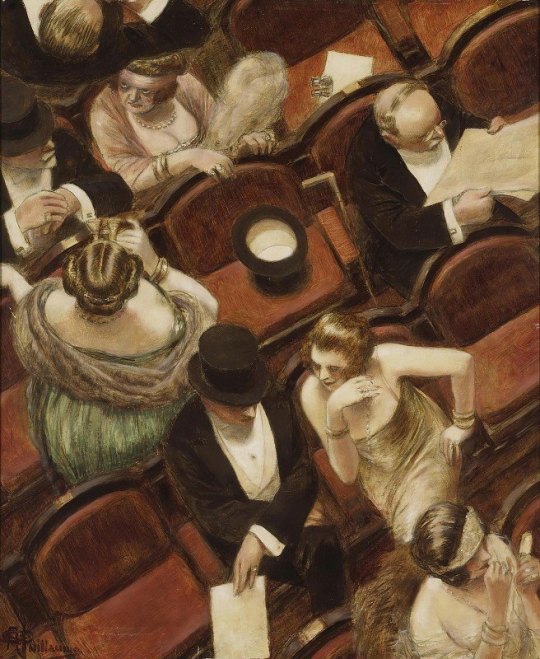
Au Theatre (c. 1920) by Albert Guillaume.
#art#aesthetic#painting#artwork#art history#paintings#classical art#fine art#classic art#1900s#french art#20th century#arthistory#artgallery#20th century art#academic art#au theatre#albert guillaume
3K notes
·
View notes
Text
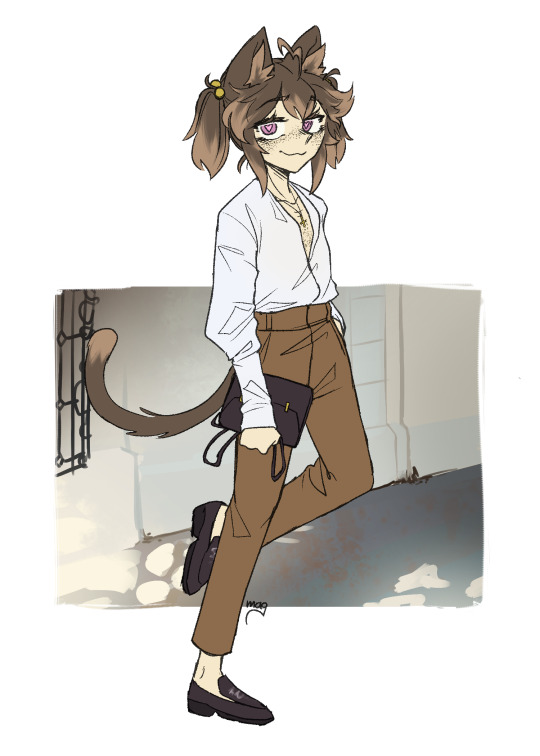
driptober day 28: minimalist
#drawtober#inktober#minimalism#fashion#catgirl#oc#illustration#drawing#art#yuno#driptober#shes soooooo like. milquetoast french theatre gay here idk why
726 notes
·
View notes
Text

Jean-Paul Sartre, from No Exit and Three Other Plays; “The Flies”
Text ID: But I—What am I but an empty shell? Some creature has devoured me, gnawed out my inner self.
#jean-paul sartre#jean paul sartre#no exit and three other plays#quote#theatre#play#french literature#lit#miscellanea#oh.
2K notes
·
View notes
Text
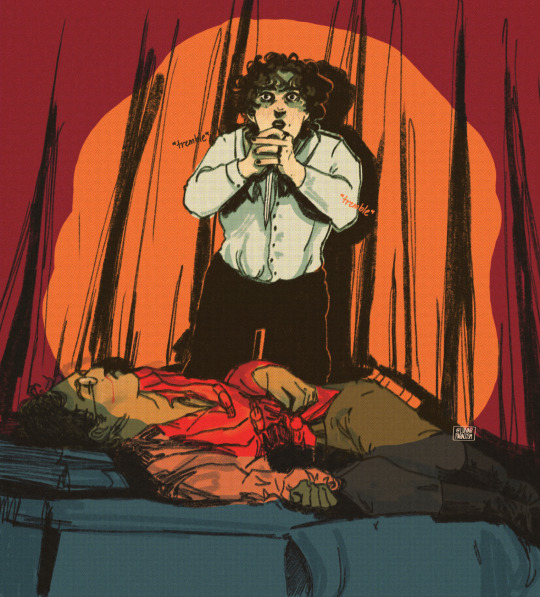
romeo and juliet.
#marauders#fanart#gay#jegulus#regulus black#james potter#james x regulus#romeo and juliet#sad shit#can you tell I’m an english major#this is based off a theatre production of Romeo and Juliet that I love#anyways#be gay be french#i’m making gay art#regulus deserved better#but he would honestly do this if james ever died#October 31rst vibes fr#sorry#not sorry#lol
202 notes
·
View notes
Photo
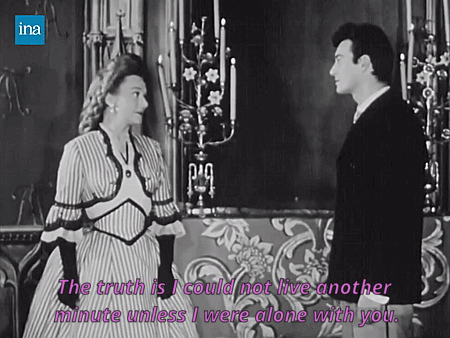
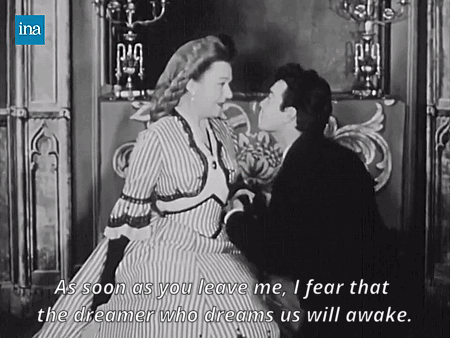

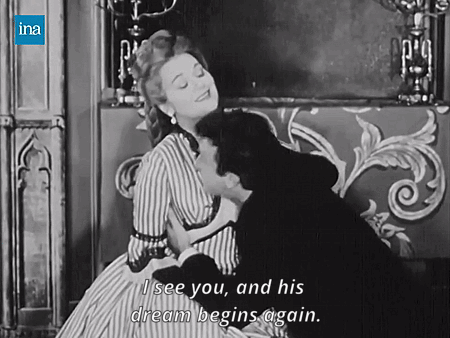
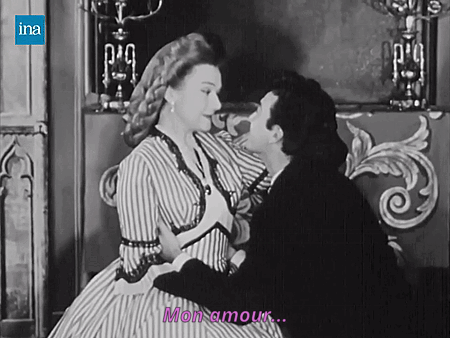
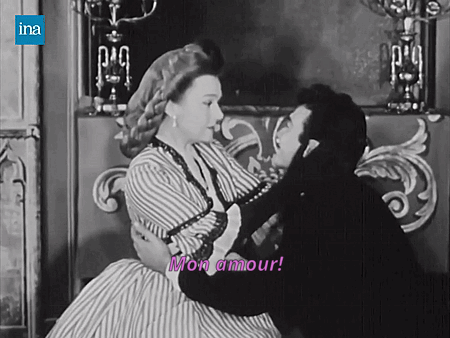
Edwige Feuillère and Gérard Barray as The Queen and Stanislas in the reprise of L'Aigle à deux têtes, Théâtre Sarah-Bernhardt, 1960.
#jean cocteau#Edwige Feuillère#gérard barray#théâtre français#french theatre#theatre#theater#vintage#love#passion#dark academia#retro#aesthetic#old hollywood#god imagine acting with her oml#the way she catches him in the second gif i--#it's so tender AGH I LOVE ITTTT#also the costumes in 1960 reprise were by#pierre balmain#losing my mind idc if 1960 was a flop#period drama#costume drama#noir et blanc#dreamy#pretty#lovecore#light academia#romantic academia#1960s#L'Aigle à deux têtes
99 notes
·
View notes
Text
Solitude seems to oppress me. And so does the company of other people.
Eugène Ionesco, Rhinoceros and Other Plays, 1959
#eugene lonesco#rhinoceros#solitude#romanian literature#alienation#french theatre#literary text#play#books and libraries#world literature#quotes#dark acadamia aesthetic#classic literature#translated literature
27 notes
·
View notes
Text
Queen Mother: Henry! I bore the weight of state affairs longer than you ever have. I have been your queen and I am your mother. You are answerable for the interests of a great Kingdom, not for your moods. You already gave far too much away to the King of France, at La Ferté Bernard. It is England you must think of, not your hatred - or disappointed love - for that man.
King: [in a fury] Disappointed love - disappointed love? What gives you the right, Madam, to meddle in my loves and hates?
Queen Mother: You have a rancour against the man which is neither healthy or manly. The King your father dealt with his enemies faster and more summarily than that. He had them killed and said no more about it. If Thomas Becket were a faithless woman whom you still hankered after, you would act no differently. Sweet Jesu, tear him out of your heart once and for all!
-
Jean Anouilh, Becket (tr. Lucienne Hill, 1960)
#100plays#becket#jean anouilh#lucienne hill#theatre quotes#modern drama#theatre#french theatre#having already rambled a little in other tags about the various historical inaccuracies in this play it would be remiss of me not to#mention that the antagonistic relationship as depicted between Henry and his mother‚ Empress Matilda‚ has no basis in#historical fact as we understand it. on the contrary‚ she was a close advisor to her son and attempted to mediate during the Becket crisis#(she also predeceased Becket by three years). she serves a crucial purpose in the play however‚ as perhaps the only foil to the king#willing to comment directly on his relationship with Becket and the debilitating effect of their estrangement#this is also one of the most direct allusions in the play to a potential homoromantic element to their relationship#perhaps unsurprisingly‚ the play has attracted queer readings and analysis fairly regularly since its publication#the 1964 film adaptation is often credited with this subtext but quite honestly it's all there in the original text#to Anouilh's Henry‚ the ideological conflict with Becket is entirely secondary to the personal betrayal of a love spurned#whether that love is inferred to be romantic or brotherly or chivalrous is dependent on the reader (or viewer)#regardless of its exact nature‚ it's a love that Henry is willing to sacrifice a great deal for: politically‚ personally‚ perhaps even#spiritually.#the part of Matilda may be relatively small but its importance to the plot‚ and the power of her lines‚ were reflected in the casting of#legendary stage actor Gwen Ffrangcon Davies in the first english production
19 notes
·
View notes
Text

So excited to see it tonight!
Thanks to @drinkthemlock for bringing it to my attention ✨
59 notes
·
View notes
Text
Evil exists only when its known. Adam and Eve were public in their fall. To sin in private is not to sin at all.
- Molière, Tartuffe
#quotes#books#literature#lit#classics#academia#light academia#dark academia#chaotic academia#book#book quotes#quotation#Moliere#Tartuffe#Plays#Drama#French#France#Theatre
81 notes
·
View notes